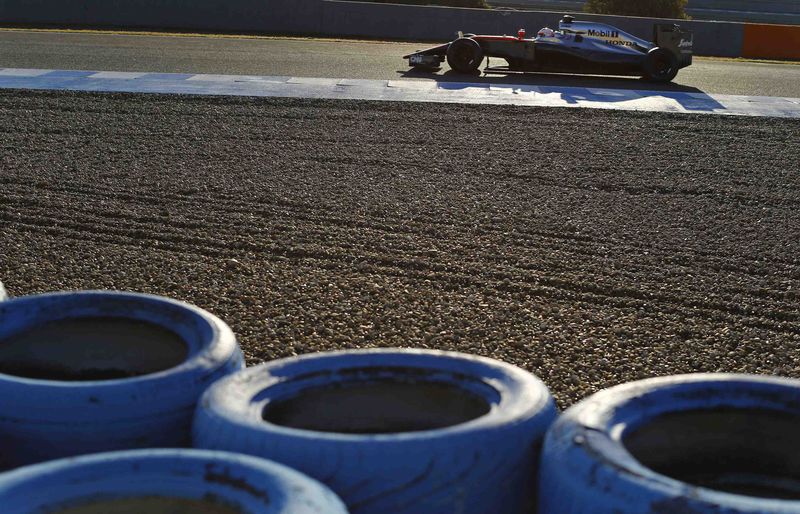By Alan Baldwin
LONDON (Reuters) - Formula One's next rules revolution will have to wait until at least 2017 after a meeting in Geneva on Tuesday voted against significant technical change before then.
Although there was no formal statement issued, sources said the FIA's Formula One Commission had rejected a proposal to change the regulations and allow cars with wider tyres and different bodywork for the 2016 season.
The 2016 rules can be changed on a majority vote up until March 1, after which unanimous approval -- a rarity in Formula One with teams having so many vested interests -- is required.
The sport underwent a major upheaval last year with the introduction of a new V6 turbo hybrid power unit, replacing the old and much louder V8 engines that some in the sport would still prefer.
While calls for a return to the V8s have fallen away, there are talks about tweaking the regulations for 2017 so that the V6 turbo engines can be increased to 1,000 bhp.
Teams have been considering ways of improving cars, and creating more excitement for spectators, without increasing already excessive costs.
REAL REVOLUTION
Ferrari principal Maurizio Arrivabene, whose team failed to win a race last year for the first time since 1993, said last month that Formula One needed "a real revolution" with faster cars producing more power and noise.
"By 2017, I would like to see cars that win over the fans, with cars that they can get closer to and that are aesthetically more appealing, maybe even producing a noise that gets your hair standing on end, like that produced by a heavy metal band," the Italian said then.
"It is up to us to provide something better and to download a new format for Formula One as soon as possible."
As part of that process, Ferrari published images on their website (www.ferrari.com) before Tuesday's meeting showing a new 'better looking' concept for a Formula One car of the future.
"Would it be possible to come up with an F1 car which not only is technologically advanced, but also captivating to the eye and aggressive-looking?," the Italian manufacturer asked viewers.

"And could this be made without having to overturn the current technical rules? At Ferrari, we believe so," it added, seeking feedback on the concept drawn up by their design studio and aerodynamics department.